Once you turn 50, you can cash in your pension as early as age 50 in Ireland, and access a 25% pension tax free lump sum. Here’s everything you need to know:
You can typically withdraw up to 25% as a tax-free lump sum from your pension. If you have a pension valued at €800,000, you can immediately draw down €200,000 tax-free from age 50.
When trying to value your pension, it is important to establish is which type of pension you have. DB pensions are usually 15 times larger than represented on your annual statement. So if it says you have €30,000 per annum, this could actually represent more than €450,000 in total pension savings.
Only when you know what type of pension you have, and how much is in your pension can you figure out if early pension access makes sense.
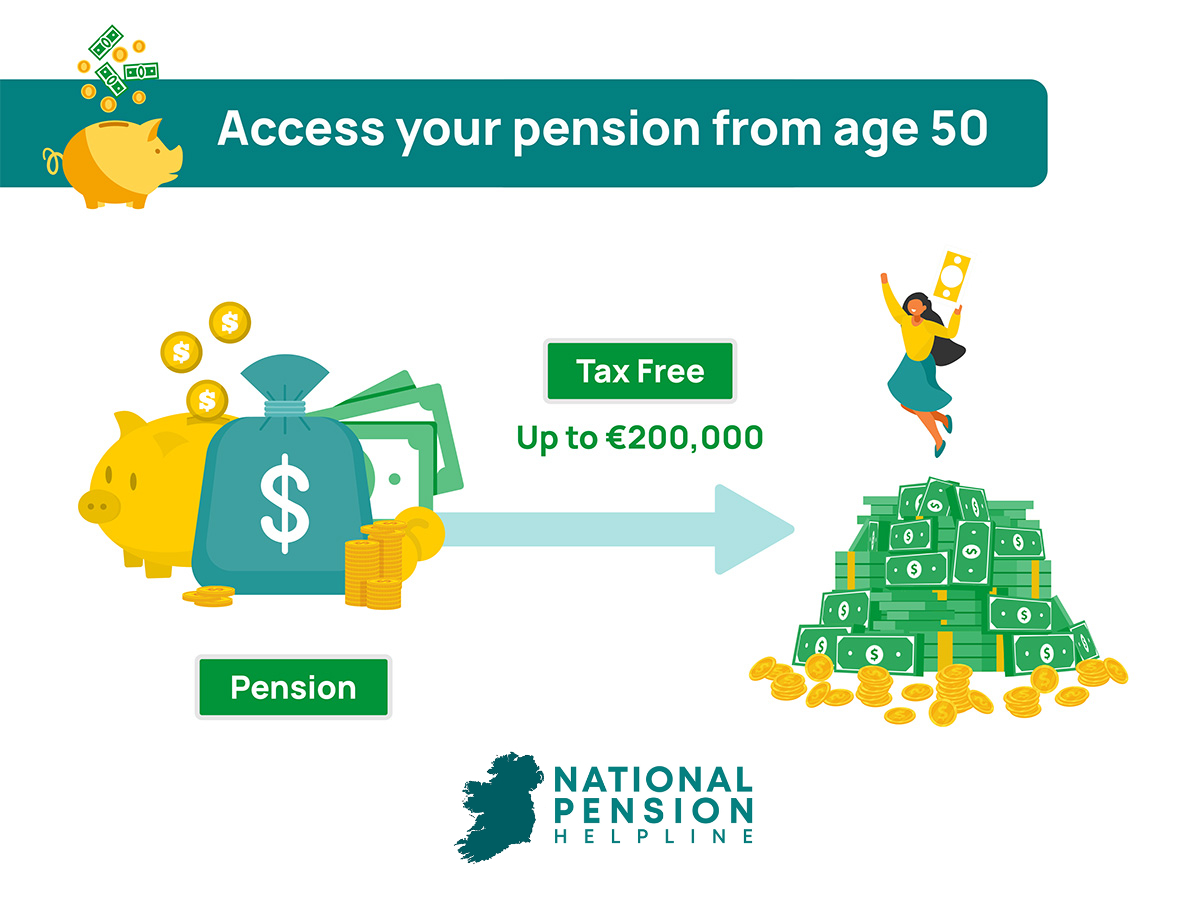
Table of Content
There are generally three types of pension in Ireland:
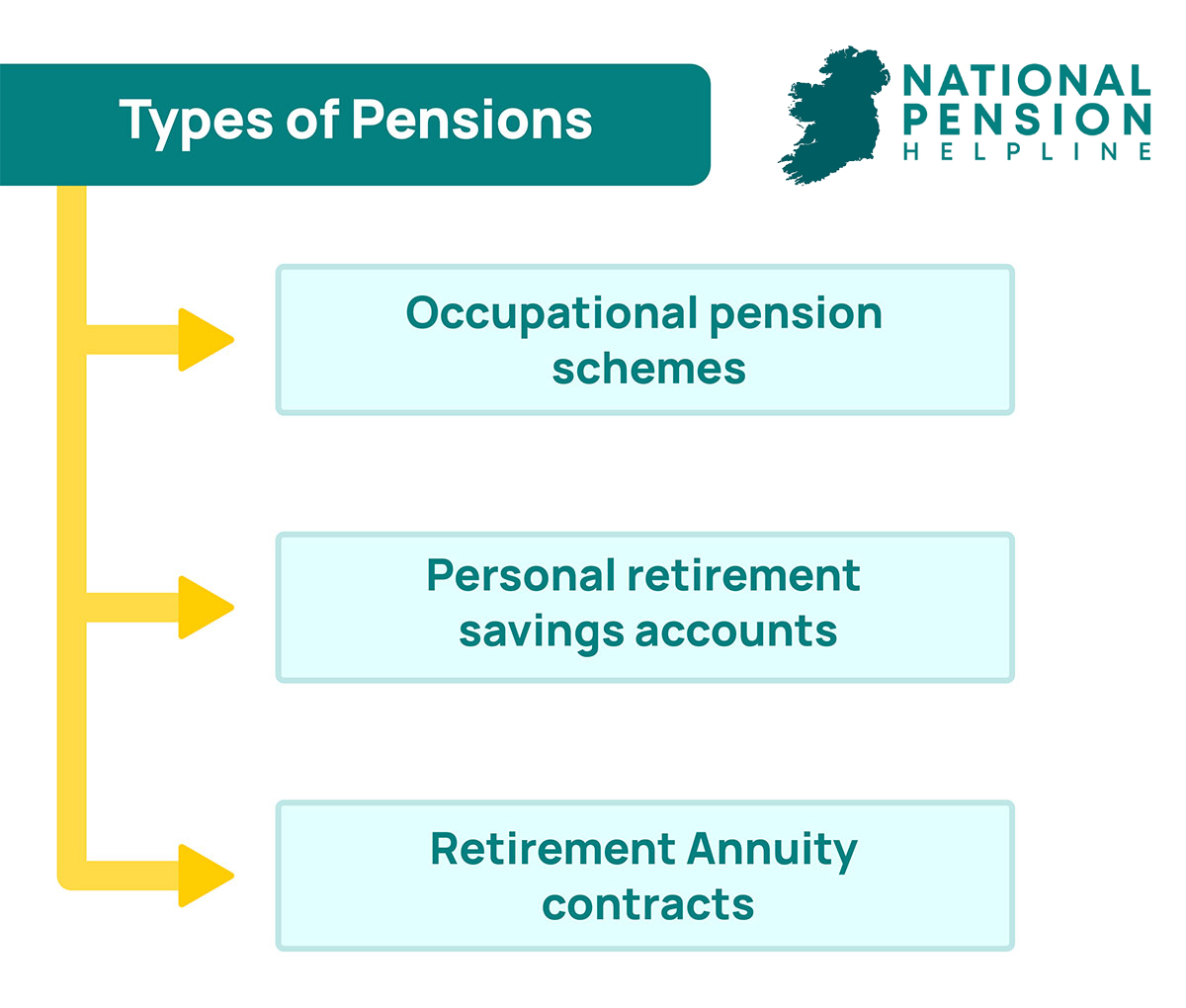
Company pension schemes
Company pension schemes are the best-known types of pension. These are often referred to as company pension plans.
It is almost always possible to cash in your company pension scheme early. 25% of a typical company pension can be accessed tax-free from age 50.
Company pension schemes are known as “occupational pension schemes” by pension advisors, but this is just the industry jargon for a company pension.
They are set up by your employer and provide a personal pension income on retirement based on your career earnings (defined benefit pension scheme) or the value of your retirement fund (defined contribution pension scheme).
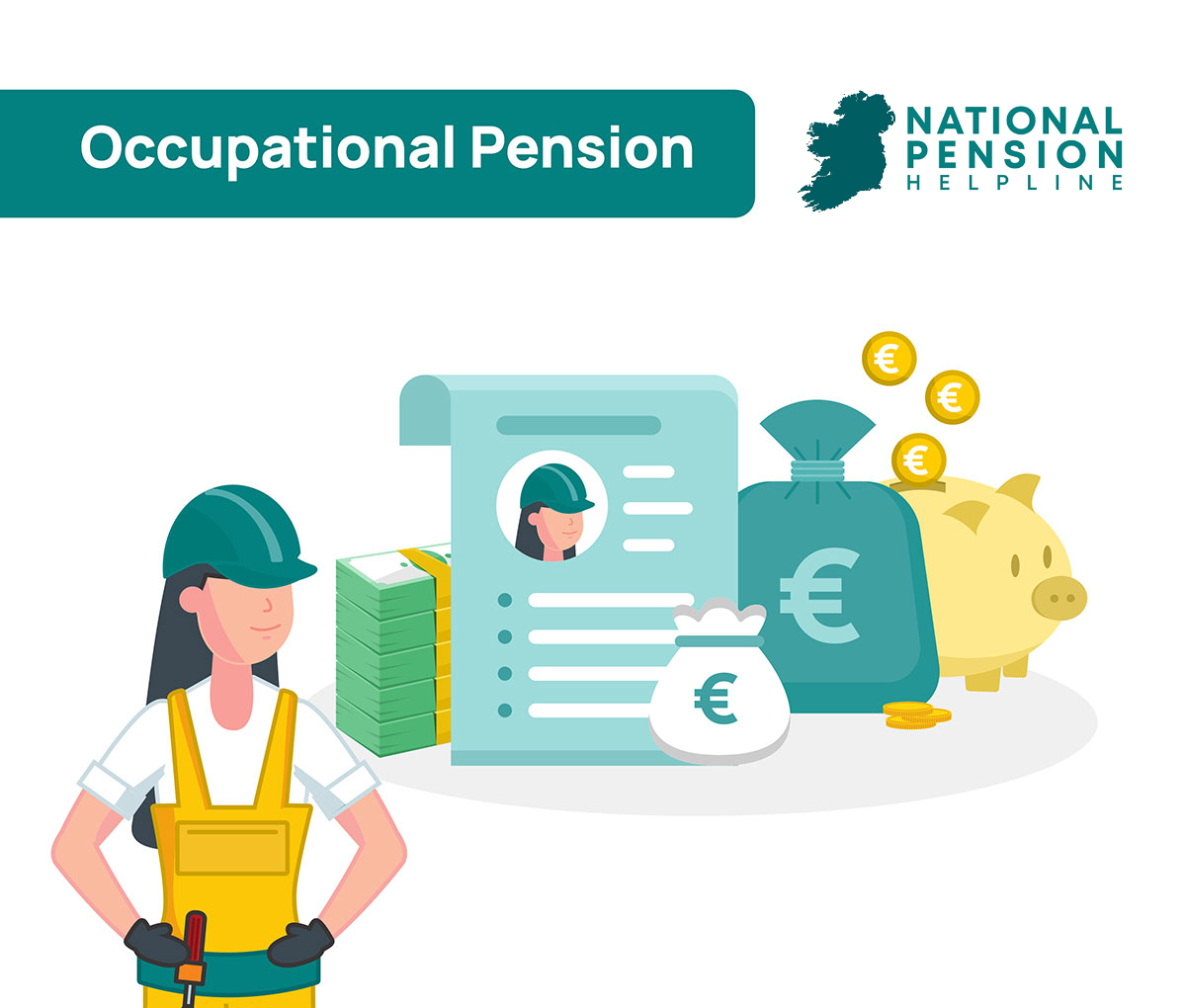
Company Pensions: Defined Contribution vs. Defined Benefit?
If you have savings in a company pension fund from your current or a former employer you worked for it will usually be categorised as either a defined benefit pension scheme or a defined contribution pension scheme.
A defined benefit pension is based on your contributions as a percentage of your salary and states the actual amount you will be paid on retirement. The amount specified is based on your salary and the number of years you have worked.
A defined contribution pension is a personal pension that is built from a contribution from your salary and, usually, an employer’s contribution. These combined contributions are then invested in a fund to provide retirement fund benefits. The actual benefits you receive when you retire are not fixed and they are dependent on the value of the contributions that you and your employer have made, the performance of your investments, and any charges and fees you have paid throughout the life of your investment.
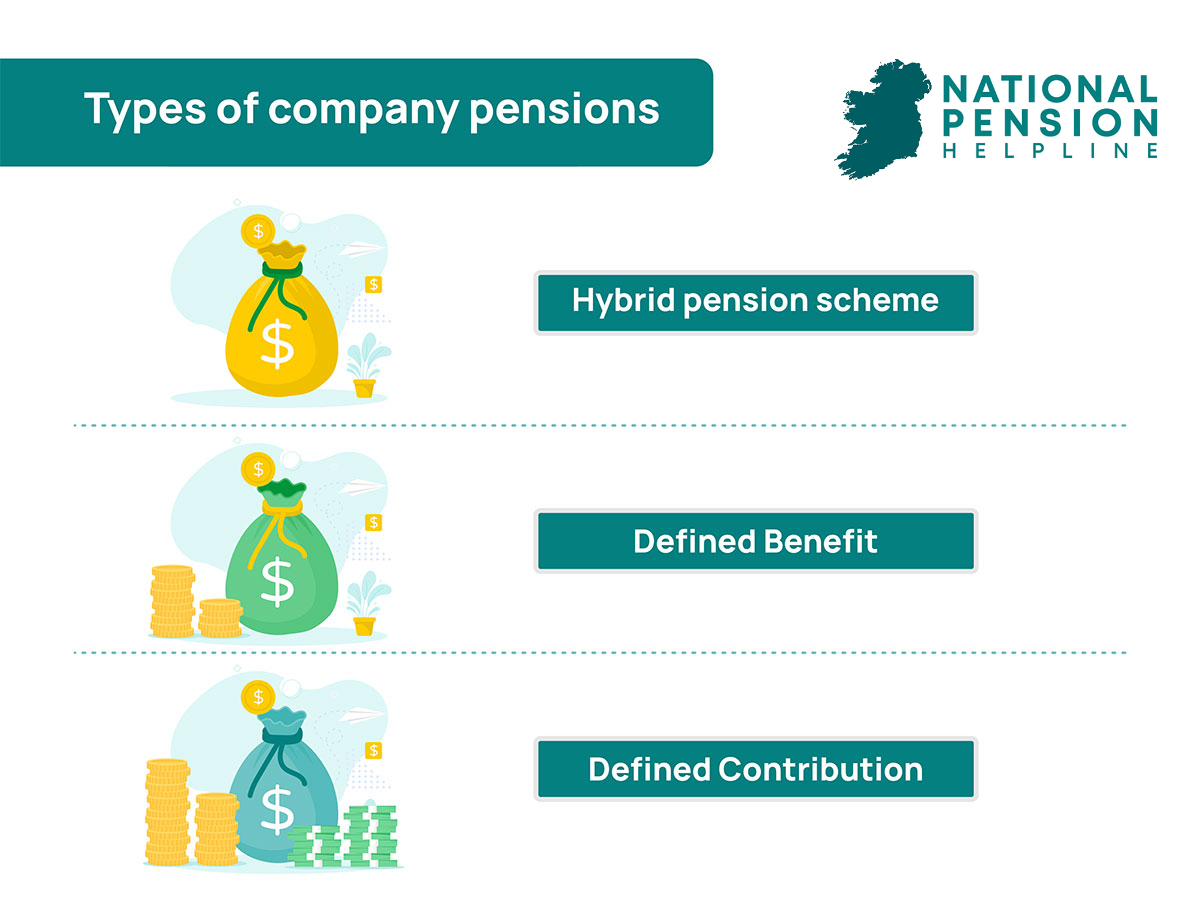
Personal Retirement Savings Accounts
A Personal Retirement Savings Account (PRSA) is a retirement fund that you set up yourself and pay contributions into. They are generally sold by insurance companies or banks. PRSAs are a type of personal pension.
Retirement Annuity Contracts
Retirement Annuity Contracts (RACs), like PRSAs (above) are also personal pension plans that you manage yourself and are sold by banks and insurance companies.
What Types of Pensions Can Be Accessed Early?
Each type of pension have their own rules, when it comes to cashing in a pension, the table below denotes the various age requirements for tax-free access.
| Pension Type | Access Age | Tax-Free Lump Sum |
|---|---|---|
| Defined Contribution (Company Pension) | 50+ | 25% |
| Defined Benefit (Company Pension) | 50+ | 25% |
| Executive Pension | 50+ | 25% |
| Personal Retirement Savings Account (PRSA) | 60+ | 25% |
| Personal Pension | 60+ | 25% |
Can I cash in my private pension early?
Yes, most people can cash in their private pension early in Ireland, usually from age 50 onwards. The term private pension refers to occupation pension schemes PRSAs, personal pensions and both defined benefit and contribution schemes. Private pension is a blanket term that covers all elements of privately owned pensions. The alternative to the term “private pension” is the “state pension”.
Early Retirement and cashing in your private pension early
Once you’ve established what kind of pension plan you have and which pension fund you’re currently in, you can start considering your options. When a person turns 50 they generally want to know whether they can release funds from their pension, what a pension release actually is and what is the maximum they can take from their pension pot.
Can I cash in my pension early in Ireland tax free?
Generally, in Ireland, you can start to draw down funds from an occupational pension once you turn 50 and are no longer with the employer that set up the scheme. If you are still employed with that company then you will have to wait until you are 60 before drawing down any funds.
Cashing in your pension at 50 does not give you access to your entire pension. It allows you to withdraw a maximum of 25% as a tax-free pension lump sum and the remaining amount must be reinvested in a retirement fund (ARF) or an annuity.
While it can be a useful source of cash in middle age, starting to access it early will, of course, reduce the value of the pension over time and isn’t always encouraged. It’s best to leave your pension invested for as long as possible.
If you do start to benefit from your pension early it is important that you make arrangements around your PRSI payments to ensure that you can still access the State pension at retirement age. This is a very important consideration when deciding on whether or not you should cash out your pension.
What is a Pension Release?
The term Pension Release simply refers to the process of drawing down funds from your pension early. You will need to meet the requirements of your pension plan to do so. These should be outlined in any contracts, documents or online accounts related to your pension.
How much can I take from my pension?
You are entitled to access 25% of your pension as a tax free, up to a maximum of €200,000.
After this ceiling is reached, you are taxed at the 20% rate for the next €300,000. Anything that remains must be invested in what is known as an Approved Retirement Fund (ARF).
The below table denotes various cash tax-free lump sums:
| Individual | Pension value | Tax Free Lump Sum (maximum 25%) | Remainder |
|---|---|---|---|
| Michelle | €225,000 | €56,250 | €168,750 |
| Brian | €450,000 | €112,500 | €337,500 |
| Pauline | €680,000 | €170,000 | €510,000 |
| James | €800,000 | €200,000 | €600,000 |
| Francis | €1,200,000 | €200,000 | €1,000,000 |
If we review the table of tax-free pension withdrawals above, 4 out of the 5 pensions qualify for a full 25% withdrawal from their respective pension funds.
Francis has a pension pot of €1.2 million, meaning that 25% of their pension is €300,000. However, €300,000 is above the maximum tax free withdrawal threshold of €200,000 and therefore only 16% (€200,000 divided by €1,200,000) can be withdrawn tax free.
Tax on cashing in your pension
Any withdrawal from a pension which is either in excess of the 25% tax free allowance, or in excess of the €200,000 withdrawal cap is known as an “excess lump sum”.
Excess lump sums are taxed at the standard rate of tax (20%) for any amounts between €200,001 and €500,000.
For amounts in excess of €500,000, the withdrawal amount is taxed under the marginal rate of PAYE (€40,000).
| Lump Sum Amount | Tax Rate |
|---|---|
| Under €200,000 | 0% |
| €200,001 – €500,000 | 20% |
| €500,000+ | 40% |
Pension Lump Sum – Tax Calculator
Check out our interactive pension lump sum calculator. This calculator allows your to review the level of tax applicable depending on the size of your pension, the withdrawal % and the total withdrawal amount.
What is an Approved Retirement Fund?
An ARF Approved Retirement Fund is an investment fund that is normally built from the residual amount remaining in your pension after you draw down early. You must invest this so that you have a guaranteed income of €12,700 per annum, which includes the State pension. Anything you withdraw from this fund is income and consequently it will be taxed as income and you will have to pay PRSI and the Universal Social Charge.
What is an Approved Minimum Retirement Fund?
The term AMRF stands for Approved Minimum Retirement Fund, but they no longer exist in Ireland. All AMRF’s have been converted to ARFs as of January 1st 2022.
What is the difference between an Approved Retirement Fund (ARF) and an Approved Minimum Retirement Fund (AMRF)?
The main difference is that an Approved Retirement Fund (ARF) is controlled by the individual who owns it and they can draw down funds as required. In the case of an AMRF you are restricted to drawing down a maximum of 4% per annum. The full amount of the AMRF will not be available to you until you reach 75 years of age.
What Pension Providers Allow Early Pension Access in Ireland?
Pension regulation means that all pension providers are required to uphold the guidelines set out by the Central Bank of Ireland and the Pensions Authority.
| Pension Provider | Cash In Available |
|---|---|
| Irish Life | ✅ |
| Zurich | ✅ |
| Standard Life | ✅ |
| New Ireland | ✅ |
| Aviva | ✅ |
How long does it take to cash in a pension?
On average, it takes 2 – 4 months to get cash for your pension policy once you have decided you want to access your cash in your pension early.
This time frame can be extended depending on which company holds your pension (Aviva, Zurich, Irish Life, Mercer, AON, Standard Life, New Ireland). The structure of your pension can also cause delays. Defined Benefit pensions are typically the slowest pension to cash out, while PRSAs and old employer pensions are usually the fastest.
Can I continue working after I drawdown from my pension fund?
Yes, it’s very common for people in retirement (and early retirement) to return to the workforce either part-time, on a casual basis or even full-time in some situations. It may have some income tax implications, but nothing to worry too much about as it will not effect your weekly pension income – it is supplementary.
Often this is to top up cashflow but also simply because with a lifetime of skills and nothing but free time people often get bored. Employment legislation dictates that there is no upper age limit on the protection of employees, allowing a return to the workforce without legal hindrance. You can continue working and receive the same protection and benefits as other full-time or part-time workers.
Why cash in your pension early?
There are many reasons why an individual might seek to take early retirement or access their pension benefits early before they retire. Usually, the main motivating factor is the massive tax free lump sum that is available (up to 25% of your gross pension fund).
1. Debt Elimination
People sometimes use their pension to pay their mortgage early and consider it to be a managed financial decision to reduce their cost of living overall.
2. Large Expenses
An individual might find themselves with a large unexpected bill later in life that requires payment and using their pension for this is a last-choice alternative.
3. Other
These are just some of the scenarios and everyone’s situation is different. You should always seek expert advice if you are planning to access your pension fund.
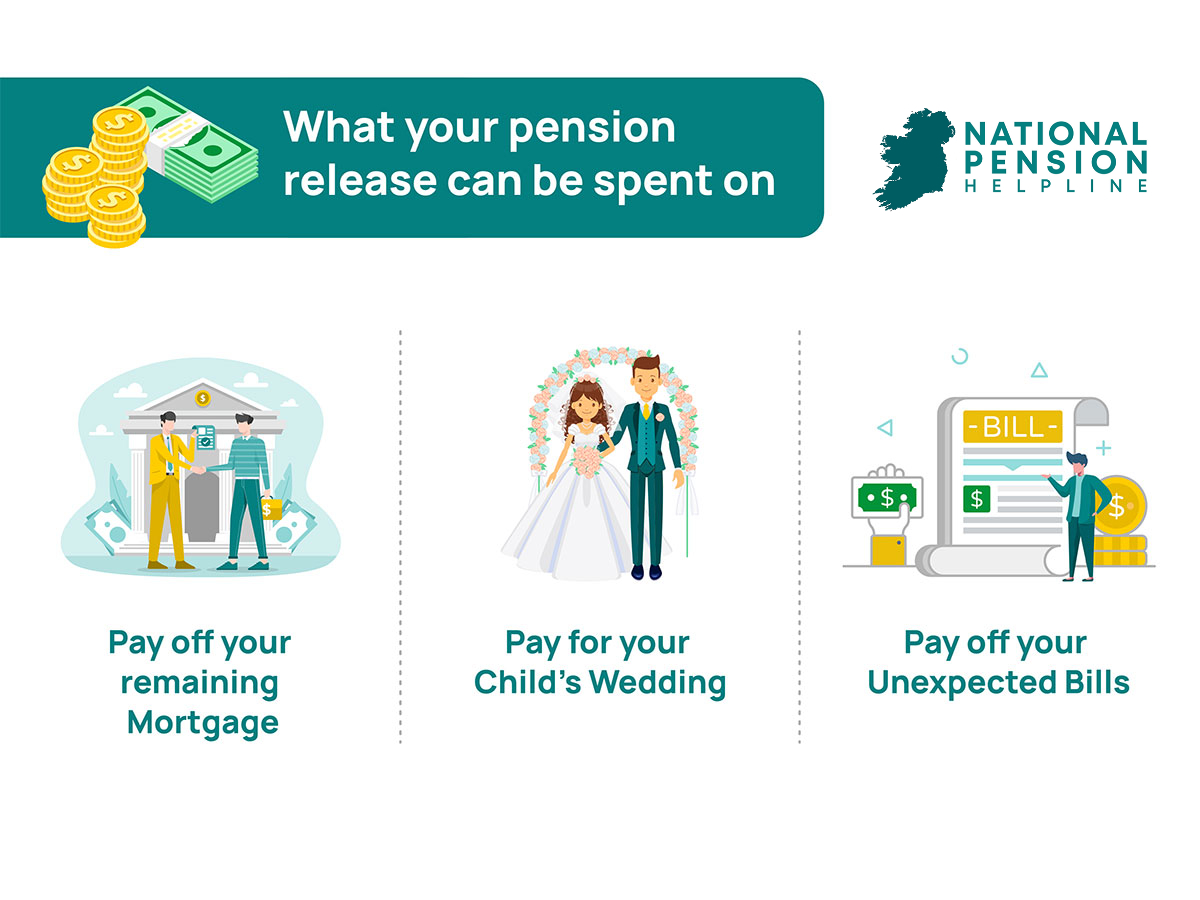
Is it too early to access my pension?
There are strict age limits in place controlling when you can access your pension. If you have an occupational pension scheme you are eligible to apply to draw down funds from 50. If you have an occupational pension scheme ,or even a PRSA, you will be eligible to draw down funds from age 50
However, there are other issues to consider also. For example, how will you fund your lifestyle in the future without your full pension benefits? The State pension may not be able to cover the cost of that lifestyle. Do you intend to continue working?
It’s also important to consider your mortgage and home ownership status. Have you paid your mortgage completely? Will you have the income to maintain the cost and maintenance of your home? Do you have dependents that you will need to support on an ongoing basis?
The question of whether or not it is too early to draw down from you pension fund is not just an age qualifying issue but one of financial planning overall. You should consider consulting an expert pension advisor who can help you make the decision to draw down part of your pension early while also planning for the future.
Withdrawal Fees & Penalties
Once you qualify for the rules of your particular pension fund you are entitled to access your personal pension without fee or penalty. There are tax issues that need to be considered if you drawdown a sum in excess of €200,000, but there is no penalty for cashing in your pension early.
This is facilitated through a mechanism called a Pension Retirement Bond (PRB) which allows combine multiple pensions into a single unified entity. It also facilities access to your pension tax-free lump sum at age 50.
Am I ready for retirement?
Whether you have a personal pension or an occupational pension, ensuring you are ready for retirement is a very personal journey. It is not just about how much money you have managed to secure in your pension but about how you plan to live your life as you age.
Throughout our careers we build a standard of living and a network of friends and colleagues who support us. Stepping away from this structure can be difficult for many people to manage. Making a successful transition is crucial and taking advice from the correct people will help with this.
The main consideration is can you live a good life with your pensions & investments while covering your life bills, loan repayments expenses and bills.
Tax in retirement
Everyone receiving a taxable income must pay income tax in the normal way, regardless of age. This includes people relying on their weekly pension benefit payments.
However, there are some important income tax exemptions that will effect your retirement income.
Currently there are exemption limits in place for people aged over 65. These limits allow you to earn income up to a certain level before you are taxed. For a single or widowed person, the limit is €18,000. Anything earned below this level will not be taxed. For a married couple or two people in a civil partnership the exemption limit is €36,000. If you have dependent children there are additional amounts added. It is currently €575 each for the first two children and €830 for any subsequent children.
In addition to the personal tax credit that everyone paying income tax under the PAYE system is entitled to, people aged 65 and over will also receive a Age Tax Credit. This is currently €245 for single or widowed people and €490 for a married couple or a couple in a civil partnership.
Business in Retirment
There no legal or financial impediments to starting a business in retirement and many people find themselves in this situation.
The main implication is that you may be required to pay income tax on the earnings depending on your income tax threshold and pension benefits.
There are many support organisations in Ireland that can help and a good starting point is the Retirement Planning Council.
Am I guaranteed a State pension?
In Ireland, the State pension is currently paid from the age of 66. It is not means-tested and so, if you qualify for it, you can also work and still receive it.
However, the state pension is not guaranteed. To qualify, you need to have paid enough social insurance (PRSI) contributions. If you have worked in Ireland and paid PRSI at any time you can apply for the State pension and your claim will be assessed based on your contributions. The weekly value of your pension will be based on how many PRSI payments you have made.
If there are gaps in your PRSI record, such as when you were raising a family or in a caring role, these will be taken into account under new rules that were introduced since 2012.
The State pension is taxable but, if it is your sole income, you will be unlikely to pay tax on it.
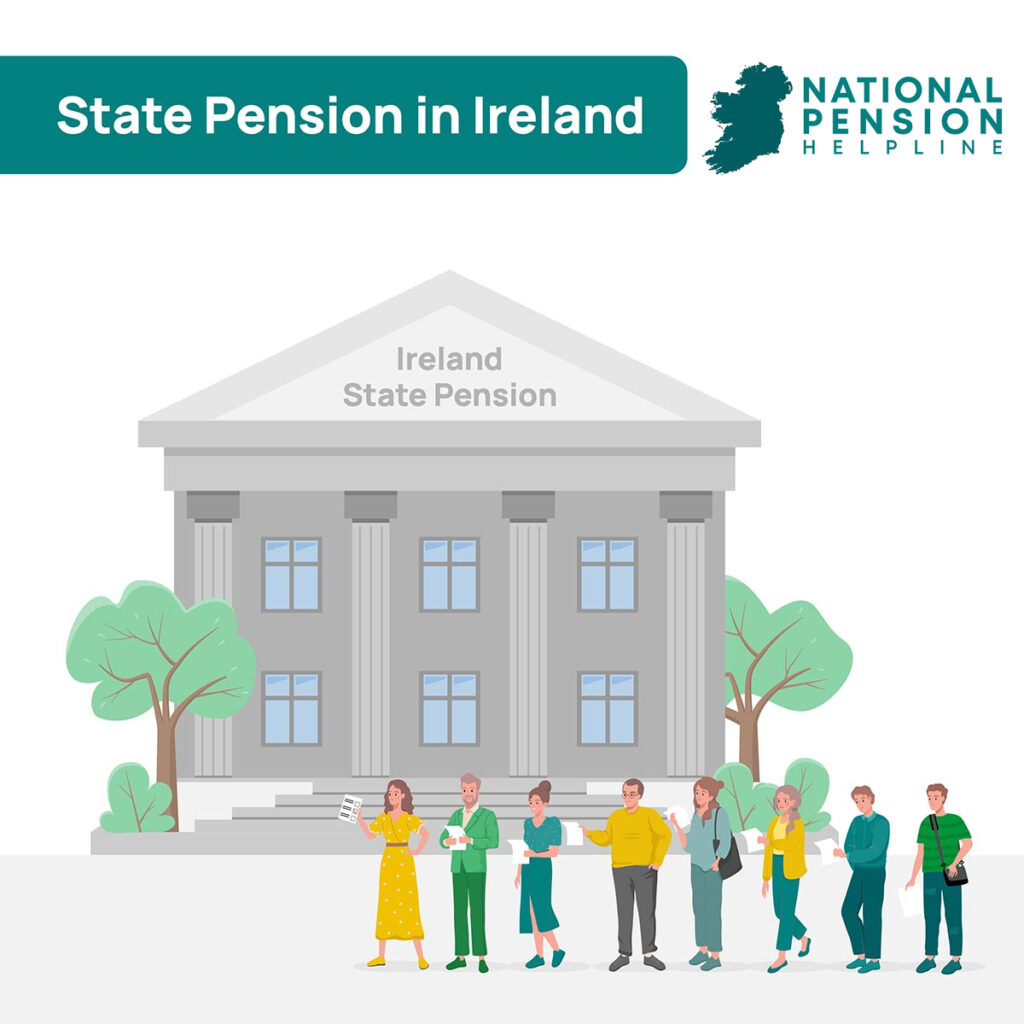
Are there benefits in retiring early?
The biggest benefit of retiring early is the impact it can have on your lifestyle. For someone who has worked full-time all their lives, they will find the freedom of stepping away from this liberating. People who are fearful of retiring and fearful of what they are going to do with themselves and their free time rarely seek to retire early. It’s generally suited to people looking for a change in pace and in life benefits. There are, of course, people who are obliged to retire early for health reasons but this is a different scenario. If you choose early retirement when you don’t have to it’s often because you are seeking a different way to live.
You will have more time to spend with family and friends, children and grandchildren. Your time becomes your own and you can design what you do with it creatively.
Reduction in stress levels is one of the most positive aspects of early retirement. Even if you are not aware of the levels of stress you are under, when you step away from the daily grind of the workplace your stress levels reduce dramatically and your health tends to take an upward lift. You are exercising more, sleeping longer and generally looking after yourself better. The younger you get to experience this the better.
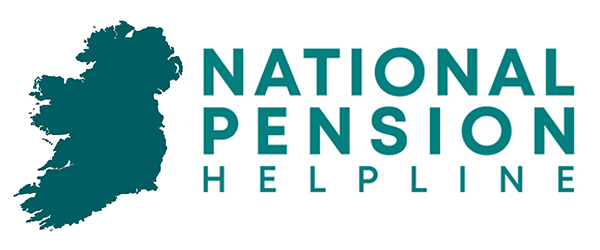
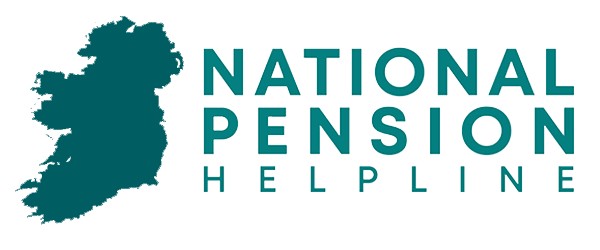
Social Welfare in Retirement?
Anyone taking early retirement may consider themselves unemployed and are entitled to the relevant levels of social welfare protection. You should seek advice from your local social welfare office to determine if you are eligible for jobseeker’s benefit or jobseeker’s allowance. You will normally also be entitled to back to work and education schemes as well as the State pension when you reach the qualifying age.